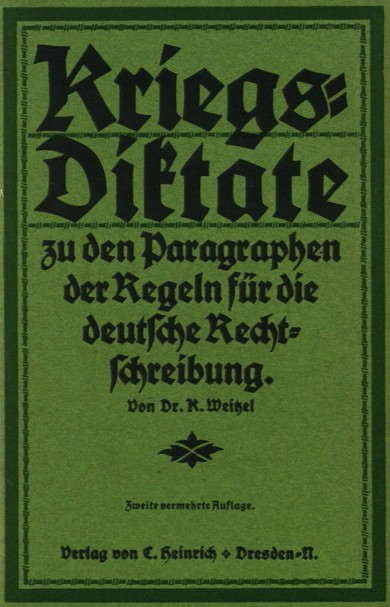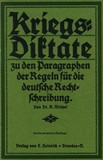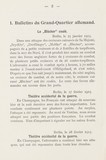1. War in the Classroom
1. War in the Classroom
Dear God, help us Germans, give us milk and butter bread. The enemy in the trenches should not get any of that. Ensure that our troops win, so that we can have time off school again.
Gertrud Kopp-Röhmhildt, For our War Child, 1916
At the beginning of the war, only relatively few directives were issued by the Ministry of Culture demanding an adjustment of the curriculum to include the war. Nor was it necessary. Like the numerous intellectuals and artists, many teachers also committed themselves to the matter at hand and began to take teaching material from the war. Instructions from the authorities only began to appear increasingly from 1916, outlining how the war should be treated at school.
In German lessons, for example, the young people were to be educated to become “personalities who are German to the marrow of their bones
” (J. Kießner, Gedanken zum Deutschen Unterricht in den Tagen des Großes Krieges) In their essays, pupils wrote of the actions of German military leaders, of the heroic death of their uncle or of their own duties on the home front, with which they wished to contribute to the success of the war.
In mathematics class, the millions and billions stood for war bonds, the hundreds or thousands of enemy prisoners of war were numbered, the range of metres and kilometres across which weapons could fire were described, and the grams and kilograms of rationed food were examined.
Physical education also played an important role in preparing young men for war. Physical training marches, jumping exercises over hedges, bushes and ditches, and rowing races imitated the physical exertions of frontline duty and were intended to toughen up the boys physically. A classic PE game, dodge ball, was renamed War Ball and was no longer played between pupils, but instead between Germans and Austrians on the one side and French, English and Russians on the other.
In addition, so-called War Lessons were given. These were held outside of school hours and typically included the singing of patriotic songs, reports on the current military situation, lectures by pupils of lower classes and the reciting of self-composed war poems by pupils of higher classes. The War Lessons concluded once again with a song and the collection of donations for charity.





